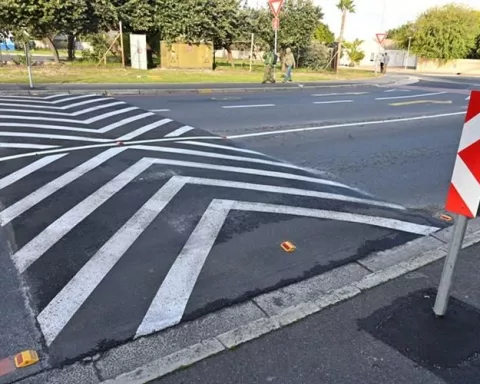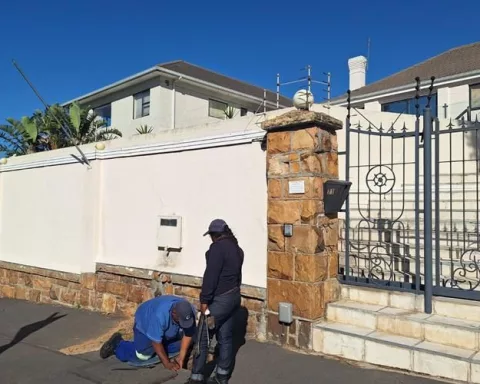The King David Mowbray Golf Club in Cape Town is more than just a golf course; it’s a beloved community treasure with over 115 years of history. As plans for new development threaten this iconic space, locals have rallied together, gathering thousands of signatures to protect it. This club not only supports local tourism and jobs but also nurtures youth and inclusivity, making it a vital part of the community’s identity. People fear that building on this land could harm the environment and strain local resources, leading to a broader debate about preserving heritage while accommodating growth. The fight to keep KDM alive reflects a strong desire to blend progress with respect for the past.
What is the significance of the King David Mowbray Golf Club in Cape Town?
The King David Mowbray Golf Club is a historic community landmark in Cape Town, serving for over 115 years as a symbol of cultural unity, tourism, and youth development. It plays a vital role in the local economy and embodies the community’s heritage and values.
A Community’s Legacy Under Threat
In Cape Town, a simmering tension has emerged as plans for a new mixed-use development take aim at the historic grounds of the King David Mowbray Golf Club (KDM). This club, steeped in over a century of history, has become the epicenter of a passionate debate within the community. Within just a few days, over 2,000 individuals have signed a petition dedicated to preserving this institution, showcasing the community’s unwavering dedication to maintaining this landmark.
The King David Mowbray Golf Club holds significance far beyond its role as a sports venue. For 115 years, it has been a symbol of cultural and social unity, offering a space where the threads of community and heritage are tightly interwoven. Trevor Steensma, the club’s General Manager, captures the essence of KDM, emphasizing that it embodies more than just golfing; it is a cornerstone of the community. This sentiment is echoed by many who view the club as integral not only to leisure activities but also to the socio-economic well-being of Cape Town.
The club’s influence extends past the manicured greens and fairways. It acts as a magnet for golf tourism, attracting over 25,000 international visitors each year, which plays a crucial role in supporting local jobs and boosting the economy. Moreover, KDM is a nurturing ground for youth development programs, instilling values of discipline and sportsmanship in the next generation. Its inclusive approach is further highlighted by its provision of access to the sport for individuals with disabilities, solidifying its status as a vital community ally.
Community Concerns and Environmental Implications
Recently, a public meeting at the Pinelands Town Hall brought community concerns to the forefront regarding the potential impact of the proposed development. The transformation of KDM into a mixed-use area raises fears about the strain on already stretched local resources. Attendees expressed anxiety over the potential impact on school capacities, which may struggle to handle an influx of new residents. The existing traffic infrastructure, already under pressure, could face severe congestion, as five nearby intersections are already plagued with heavy traffic.
Environmental considerations add another layer of complexity to the situation. The golf course plays a crucial role as a natural flood barrier for two adjacent rivers, a function that could be compromised by development. Transforming this green space might disrupt the local ecosystems and increase flood risks in an area already grappling with the challenges posed by climate change.
A key element of KDM’s identity is its partnership with the South African Disabled Golf Association. Lily Reich, the association’s Operations Manager, voiced significant concerns about the future of their programs if the development proceeds. She highlighted the logistical and financial obstacles of relocating their activities, emphasizing that moving is not feasible. The partnership with KDM provides vital resources that enable hundreds of disabled golfers, including young beginners, to engage in the sport each week.
Cultural Significance and Broader Implications
KDM is a tapestry woven with threads of South Africa’s broader narrative of transformation and unity. Originating as a confluence of the King David, Peninsula, and Mowbray clubs, it reflects the nation’s journey towards inclusivity and reconciliation. This historical context elevates the club from a mere recreational facility to a symbol of community cohesion and cultural heritage.
The debate over the future of KDM is part of a larger conversation about urban development and heritage preservation. The tension between progress and preserving cultural landmarks is not unique to Cape Town; it resonates with urban centers worldwide. As cities expand, the pressure to accommodate growing populations increases, yet this growth should not come at the cost of irreplaceable cultural assets.
Advocates for the development argue for the necessity of mixed-use projects to tackle issues like affordable housing. However, opponents insist that such solutions should not involve sacrificing historical landmarks. Trevor Steensma adds a poignant perspective, urging city officials to consider alternative solutions by utilizing vacant and unused land throughout the city instead of dismantling a functioning asset.
A Call for Thoughtful Urban Planning
The community’s response is not just a resistance to change, but a plea for thoughtful and inclusive urban planning. They envision a future where development and heritage can coexist, enriching the city’s cultural and social landscape. The effort to save KDM reflects a collective desire to uphold values of community, legacy, and sustainability.
As Cape Town grapples with this complex issue, it mirrors a universal challenge faced by urban centers across the globe: how to honor the past while embracing the future. The outcome of this debate will not only determine the fate of the King David Mowbray Golf Club but will also showcase the community’s determination to preserve its heritage amid the tide of progress. In doing so, Cape Town offers a testament to its commitment to balancing growth with the preservation of its cherished historical landmarks.
FAQ: King David Mowbray Golf Club Debate
What is the King David Mowbray Golf Club and why is it important?
The King David Mowbray Golf Club is a historic golf course in Cape Town with over 115 years of history. It serves as a symbol of cultural unity and plays a crucial role in local tourism, youth development, and community identity. With thousands of visitors each year, it significantly contributes to the local economy and fosters inclusivity within the community.
Why are locals concerned about the proposed development?
Locals are worried that the proposed mixed-use development on the golf club’s grounds could strain local resources, such as schools and traffic infrastructure, which are already under pressure. There are also environmental concerns, as the golf course acts as a natural flood barrier for adjacent rivers, and development may disrupt local ecosystems.
How does the King David Mowbray Golf Club support youth and inclusivity?
The club provides programs that promote youth development through golf, instilling values such as discipline and sportsmanship. It is particularly notable for its partnership with the South African Disabled Golf Association, offering access to the sport for individuals with disabilities, thereby reinforcing its commitment to inclusivity.
What has the community’s response been to the development plans?
The community has rallied together, gathering thousands of signatures on petitions to preserve the King David Mowbray Golf Club. Public meetings have highlighted widespread concerns about the proposed development, emphasizing a strong desire to maintain this vital community asset.
What are the cultural implications of losing the golf club?
Losing the King David Mowbray Golf Club would represent a significant loss of cultural heritage, as the club is intertwined with South Africa’s narrative of transformation and unity. It stands as a testament to the community’s journey towards inclusivity and reconciliation, making its preservation crucial for future generations.
What alternatives have been suggested for urban development in Cape Town?
Advocates for preservation suggest that city officials should consider utilizing vacant and unused land for new developments instead of sacrificing historical landmarks like the King David Mowbray Golf Club. This approach would allow for urban growth while respecting and maintaining the community’s cultural heritage.












